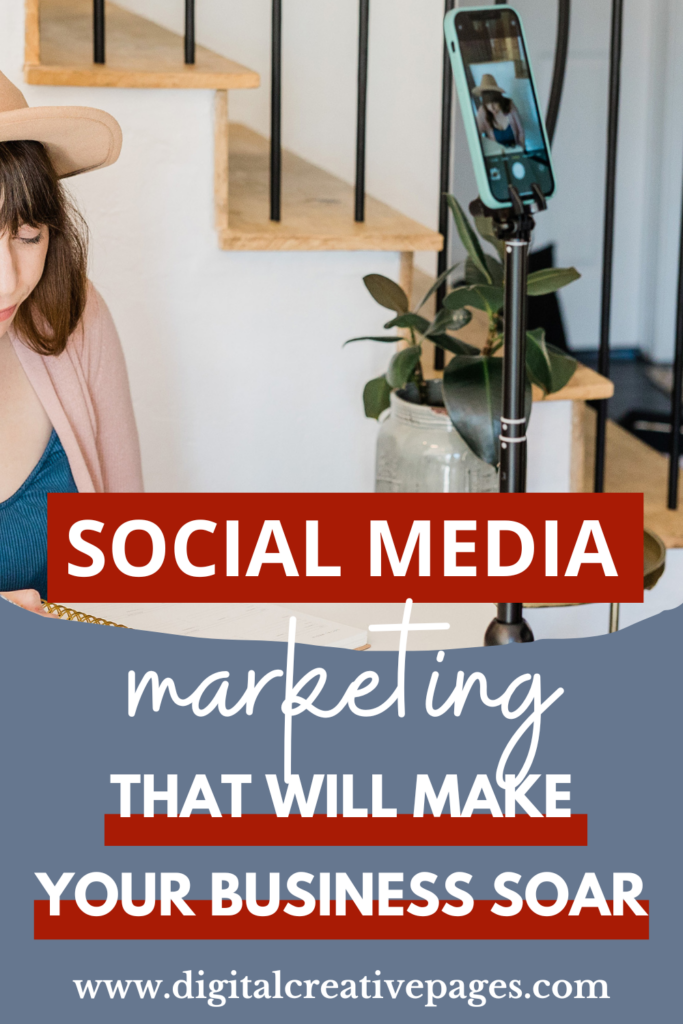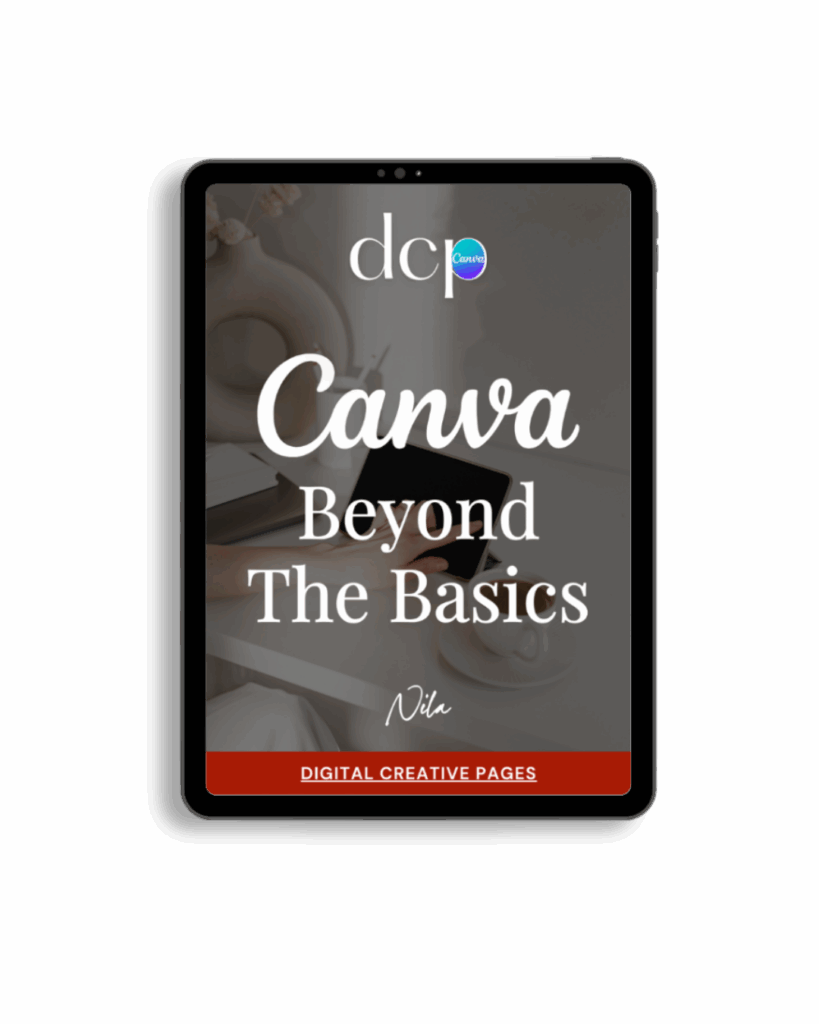Introduction
In today’s fast-paced digital world, having a strong online presence is no longer optional for businesses – it’s essential. And at the heart of this digital revolution lies social media marketing. But why exactly is social media marketing so important for your business? How does it work, and can it really help your bottom line? In this comprehensive guide, we’ll dive deep into the world of social media marketing, exploring its benefits, best practices, and how you can leverage it to take your business to new heights.
Pin this for later

Why is Social Media Marketing Important for Your Business?
1. Reach a Massive Audience
First and foremost, social media platforms offer access to an enormous potential customer base. With over 4.5 billion active social media users worldwide, these platforms provide an unparalleled opportunity to connect with your target audience. Whether you’re a local boutique or a global enterprise, social media allows you to expand your reach far beyond traditional marketing methods.
2. Cost-Effective Marketing
Compared to traditional advertising channels like print or television, social media marketing is incredibly cost-effective. Many platforms offer free business accounts, and even paid advertising options are often more affordable and targeted than conventional methods. This makes social media marketing an excellent option for businesses of all sizes, especially small businesses and startups with limited marketing budgets.
3. Enhance Brand Awareness and Recognition
Consistent, engaging social media presence helps build brand awareness and recognition. By regularly sharing valuable content, interacting with followers, and showcasing your brand’s personality, you create a strong, memorable brand image that resonates with your audience.
4. Improve Customer Engagement and Loyalty
Social media platforms provide a direct line of communication between your business and your customers. This two-way interaction allows you to respond to queries, address concerns, and build relationships with your audience. Engaged customers are more likely to become loyal brand advocates, driving repeat business and word-of-mouth referrals.
5. Boost Website Traffic and SEO
A well-executed social media strategy can significantly increase traffic to your website. By sharing links to your site’s content, you create additional pathways for users to find you. Moreover, social signals (likes, shares, comments) can positively impact your search engine rankings, improving your overall SEO performance.
6. Gain Valuable Customer Insights
Social media platforms offer a wealth of data about your audience’s preferences, behaviors, and demographics. This information can help you refine your marketing strategy, develop targeted campaigns, and even inform product development decisions.
Want easy, practical content tips to grow your business? Join my weekly email list for Canva tricks, new social media updates, and simple strategies that actually work.
How Does Social Media Marketing Work?
Now that we understand why social media marketing is crucial let’s explore how it actually works:
1. Strategy Development
Effective social media marketing begins with a well-thought-out strategy. This involves:
- Defining your goals (e.g., increasing brand awareness, driving website traffic, generating leads)
- Identifying your target audience
- Choosing the right social media platforms
- Creating a content calendar
- Setting key performance indicators (KPIs) to measure success
2. Content Creation and Curation
The heart of social media marketing is content. This includes:
- Creating original, engaging posts (text, images, videos)
- Sharing relevant third-party content
- Developing a consistent brand voice and aesthetic
- Using a mix of content types (educational, entertaining, promotional)
3. Community Management
Building and nurturing your social media community involves:
- Responding to comments and messages promptly
- Engaging with followers’ content
- Hosting Q&A sessions or live streams
- Encouraging user-generated content
4. Paid Advertising
While organic reach is valuable, paid social media advertising can amplify your message:
- Creating targeted ad campaigns
- Using platform-specific ad formats (e.g., Facebook Carousel Ads, Instagram Stories Ads)
- Retargeting website visitors or email subscribers
- A/B testing ad creative and copy
5. Analytics and Optimization
Continuous improvement is key to social media marketing success:
- Monitoring key metrics (engagement rate, reach, conversions)
- Using built-in analytics tools and third-party software
- Adjusting your strategy based on performance data
- Staying up-to-date with platform algorithm changes and new features
Can Social Media Marketing Really Help My Business?
The short answer is a resounding yes! When executed effectively, marketing on different social platforms can deliver tangible benefits to businesses of all sizes and across various industries. Here are some ways social media marketing can boost your business:
1. Increased Brand Visibility
By consistently posting engaging content and interacting with your audience, you keep your brand top-of-mind. This increased visibility can lead to more brand recall when potential customers are ready to make a purchase decision.
2. Higher Conversion Rates
Social media marketing can significantly impact your conversion rates. By sharing product information, customer testimonials, and exclusive offers, you can guide potential customers through the sales funnel more effectively.
3. Improved Customer Service
Social media platforms allow you to provide real-time customer support. By promptly addressing customer queries and concerns, you can enhance customer satisfaction and build a reputation for excellent service.
4. Competitive Advantage
Many businesses are still not fully leveraging the power of social media marketing. By developing a strong social media presence, you can gain a competitive edge in your industry.
5. Targeted Advertising
Social media platforms offer highly sophisticated targeting options for paid advertising. This allows you to reach your ideal customers based on demographics, interests, behaviors, and even life events.
6. Influencer Partnerships
Social media marketing opens up opportunities for collaborations with influencers in your niche. These partnerships can help you reach new audiences and build credibility through social proof.
Which Sites Are Best for Social Media Marketing?
The best social media platforms for your business will depend on your target audience, industry, and marketing goals. However, here’s an overview of some popular platforms and their strengths:
1. Facebook
- Massive user base across diverse demographics
- Excellent for both B2C and B2B marketing
- Robust advertising platform with detailed targeting options
- Great for building community and sharing various content types
2. Instagram
- Visual-focused platform ideal for showcasing products and brand personality
- Popular among younger demographics (Millennials and Gen Z)
- Strong e-commerce features (Instagram Shopping)
- Effective for influencer marketing
Related Post: The Best Ways To Grow Profitable Businesses On Instagram
3. LinkedIn
- Professional network perfect for B2B marketing
- Ideal for thought leadership content and industry insights
- Targeted advertising options based on job titles, companies, and professional interests
- Useful for recruiting and employer branding
4. X formerly known as Twitter
- Real-time engagement and trending topics
- Great for customer service and building brand personality
- Effective for sharing news, updates, and joining industry conversations
- Advertising options include promoted tweets and trending topics
5. TikTok
- Rapidly growing platform popular among younger audiences
- Ideal for creative, entertaining short-form video content
- Potential for viral marketing campaigns
- Emerging advertising options with high engagement rates
6. Pinterest
- Visual discovery platform great for lifestyle brands and e-commerce
- High purchase intent among users
- Long content lifespan compared to other platforms
- Effective for driving traffic to your website
Remember, it’s often better to focus on a few platforms and do them well rather than trying to maintain a presence on every social network. Choose the platforms that align best with your target audience and business goals.
Are Social Media Marketing and Digital Marketing the Same?
While social media marketing and digital marketing are closely related, they are not exactly the same. Let’s break down the differences:
Digital Marketing
Digital marketing is an umbrella term that encompasses all marketing efforts that use digital channels to reach consumers. This includes:
- Search Engine Optimization (SEO)
- Pay-Per-Click Advertising (PPC)
- Content Marketing
- Email Marketing
- Mobile Marketing
- Social Media Marketing
Social Media Marketing
Social media marketing is a subset of digital marketing that focuses specifically on using social media platforms to connect with your audience, build your brand, increase sales, and drive website traffic.
In essence, all social media marketing is digital marketing, but not all digital marketing is social media marketing. A comprehensive digital marketing strategy often includes social media marketing as a key component, alongside other tactics like SEO, email marketing, and content marketing.
How to Do Social Media Marketing for a Small Business?
As a small business owner, you might feel overwhelmed by the prospect of social media marketing. However, with the right approach, even small businesses can achieve significant results. Here’s a step-by-step guide to get you started:
1. Define Your Goals
Start by clearly outlining what you want to achieve through this marketing. Common goals for small businesses include:
- Increasing brand awareness
- Driving traffic to your website
- Generating leads or sales
- Improving customer engagement and loyalty
2. Know Your Audience
Identify your target audience and research their social media habits. Which platforms do they use most? What type of content do they engage with? Understanding your audience will help you create more effective content and choose the right platforms.
3. Choose the Right Platforms
Based on your audience research and business type, select 2-3 social media platforms to focus on. It’s better to excel on a few platforms than to spread yourself too thin across many.
4. Create a Content Strategy
Develop a content plan that aligns with your goals and resonates with your audience. Consider using a content calendar to plan and organize your posts. Mix up your content types, including:
- Educational posts (how-to guides, tips, industry insights)
- Behind-the-scenes content (showcase your team or processes)
- User-generated content (customer photos, testimonials)
- Promotional content (new products, special offers)
5. Be Consistent
Consistency is key in marketing. Establish a regular posting schedule and stick to it. Use scheduling tools to plan and automate your posts in advance.
6. Engage With Your Audience
Social media is a two-way street. Respond to comments, messages, and mentions promptly. Encourage conversations and build relationships with your followers.
7. Use Visual Content
Incorporate high-quality images and videos into your social media strategy. Visual content tends to perform better across most platforms and can help your small business stand out.
8. Leverage User-Generated Content
Encourage your customers to share their experiences with your products or services. User-generated content provides social proof and can significantly boost your credibility.
9. Monitor and Analyze Your Performance
Regularly review your social media metrics to understand what’s working and what’s not. Use this data to refine your strategy and improve your results over time.
10. Consider Paid Advertising
While organic reach is important, consider allocating a small budget for paid social media advertising. Even a modest investment can help boost your visibility and reach new potential customers.
11. Stay Up-to-Date
Social media platforms and best practices are constantly evolving. Stay informed about new features, algorithm changes, and trends in your industry to keep your strategy fresh and effective.
12. Be Authentic
As a small business, your unique personality and story can be your biggest asset on social media. Don’t be afraid to show the human side of your business and connect with your audience on a personal level.
Conclusion
Marketing on social media platforms has become an indispensable tool for businesses of all sizes in today’s digital landscape. Its ability to reach vast audiences, build brand awareness, engage customers, and drive measurable results makes it a powerful addition to any marketing strategy.
While it may seem daunting at first, especially for small businesses, the key to success lies in developing a clear strategy, understanding your audience, and consistently delivering value through your social media presence. By following the guidelines and tips outlined in this post, you can harness the power of social media to grow your business, connect with your customers, and stay ahead of the competition.
Remember, social media marketing is not a one-size-fits-all solution. It requires ongoing effort, creativity, and adaptation. But with patience, persistence, and a willingness to learn and evolve, you can turn social media into a powerful engine for your business growth.
So, are you ready to take your business to the next level with social media marketing? Start small, stay consistent, and watch your online presence flourish. The digital world is waiting for you – it’s time to make your mark!
Loved This Post? Save It for Later!
And hey! If this post helped you, don’t forget to pin it to one of your boards so you can revisit it anytime. And more small business owners and creators can discover these helpful tips. Every save and share genuinely supports my work, and I’m grateful for it! Thank you!

WANT TO MASTER CANVA LIKE A PRO?

If you’re ready to move beyond basic designs and unlock Canva’s most powerful features, my book Canva – Beyond the Basics is for you.
Learn advanced workflows, time-saving hacks, and features like brand templates that busy entrepreneurs need to create professional content faster. It’s designed for anyone who wants to work smarter, not harder.
TEMPLATES FOR ENTREPRENEURS
No time to design from scratch? My Pinterest Templates are created with strategy, structure, and your brand in mind.
Pick your style: Modern Minimalist | Soft Storytelling | Entrepreneur-Friendly Layouts
For the cost of a latte, get them here → DCP Shop → $5
MY TOP POSTS
My INTRODUCER post – check out why I chose Showit as my website builder here
Use my affiliate code DCP to get one 1.5 months free on Showit
Get all the resources for your online business growth and Pinterest marketing without breaking the bank from my DCP Shop here
By signing up for my freebies, you are agreeing that I can use your email address to market to you. You can unsubscribe from marketing emails at any time by using the link in my emails.
Previous post
next post
Search + Enter
meet nila
Hi. I am
Nila
Beta reader, book editor, Pinterest manager, Showit VA
I’m a beta reader and book editor and PA for authors, specializing in story clarity and developmental feedback. I run a sustainable online business that keeps working for me 24/7.
Along with this, I offer Pinterest management for overwhelmed creatives and entrepreneurs and set up and customize Showit templates when the tech side gets too overwhelming.
My Shop
Buy now
i need it
Free Stuff
get the goods
check it out
My Favorites
apps + Tools
Yes, please
Handpicked Links
Excited to get started? Me too!
i can't wait to
Connect with you
Let's discuss how best I can help you and your business
find your way around
about
for authors
Showit
shop
Blog
freebies
Contact
elsewhere
X
Copyright © 2024 - 2026 Digital Creative Pages | All Rights Reserved | Terms & Conditions | Privacy Policy
Website Template by Digital Creative Pages.
Photos by Styled Stock Society
Subscribe here for weekly Canva & Social Media tips and 10% off in my shop



